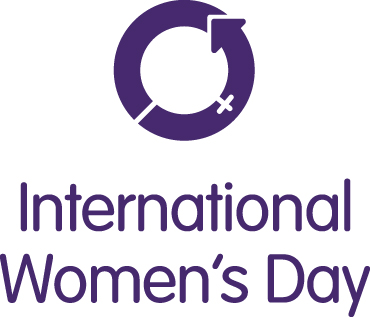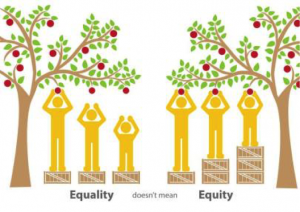
International Women’s Day – Women’s Equity vs. Equality
By Beth Ellen Holimon, Dining for Women Executive Director
International Women’s Day is March 8th and this year’s theme – “Pledge for Parity” – brings up the issue of equality. According to the World Economic Forum, the gender gap won’t close entirely until 2133. We know the benefits of closing the gender gap – Dining for Women Co-Founder Marsha Wallace addressed it in her blog and I addressed it in a blog as well. We know the importance of equality, but we also need to recognize the importance of equity.
Recently at a DFW Board retreat, we continued our discussion about the difference between equity and equality and which we should be aspiring to in our work at Dining for Women. The difference is extremely important to our work and the direction we are taking in our 2020 Vision.
The difference in these two words always makes me think of my two kids. I have a 10-year-old and a seven-year-old. The seven-year-old doesn’t think it is fair that the 10-year-old gets more “screen time” because he gets to do his homework on the computer. Is it fair? Of course it is fair, but it is not equal. It doesn’t matter that the younger one WANTS to do his homework on the computer, it matters that the older one needs to in order to function at grade level and I am protecting the younger one from brain rot with more screen time. By helping both my children to be successful, I am giving them equitable treatment. It is not equal, but it is fair.
Equity is giving everyone what they need to be successful. Equality is treating everyone the same.
The purpose of striving for equality is to create a level playing field. But that only works if everyone starts at the same place. Since girls and boys in many parts of the world are staring at different barriers to achieve the same goals, we need to treat them differently.
Let’s look at a couple of situations:
- Boys and girls are both legally allowed to go to school, but only the boys do. So, an organization seeks to increase girls’ participation by providing special assistance for girls such as:
- safe transportation (so they can travel without fear of being attacked);
- financial assistance to buy books (because in most families it is only acceptable to spend that kind of money on boys); and
- opportunities for extra tutoring (the girls probably started school late because they were viewed as being needed at home).
- There is no law forbidding women from owning businesses in X country, but very few do. In order to overcome these social norms, a micro-loan program is set up for women only.
Equality would not only ignore the differences in the barriers women and girls face, it would promote privilege and prevent appropriate problem-solving for societal issues. Is it our goal to erase gender and have men and women end in the same place? No, but it is our goal to make sure that the most oppressed group has access to the same achievements and resources.
Often I am asked why DFW doesn’t award domestic grants. From our perspective, we want to make the biggest impact we can to increase equity for women and girls, and the most impactful place to do that is where people are living below the $1.70 a day poverty line. This is equitable.
The theme for International Women’s Day is “Pledge for Parity”. We at DFW are behind this pledge 100 percent, but we also know that parity, or equality, is not enough. In order to fix the differences in the treatment of men and women, we must address the systemic obstacles. Relying only on practices of “equality” does not bring justice. We must be more intentional, more critical, and more invested.
It takes a lot more work to create equity.
Dining for Women knows this and that is why we are addressing the problem of inequity by funding localized grassroots organizations; educating our growing number of members, which contributes to a global awareness; extending our hands to other organizations through partnerships; and advocating for women and girls so we can harness the voices of our members to create systemic change. We must look at these problems from all angles and we are committed to doing so. Dining for Women is slowly moving our communications to “equity” from “equality” and we began this process with our 2020 Vision which states that one of our goals is to continue to “support grassroots organizations working in developing countries to promote gender equity and empower women and girls”.
Please participate in the social media campaign for International Women’s Day with #IWD2016 and #PledgeforParity, along with #Dineforwomen. Equality is part of the equation, but let’s not stop there!

